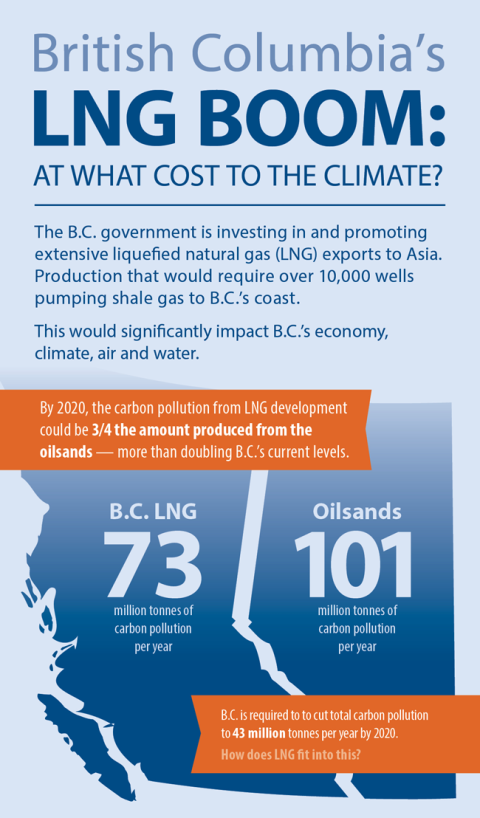The connection between B.C.'s proposed liquefied natural gas (LNG) development strategy and carbon pollution is significant. And just how the government chooses to manage both issues will have serious long-term implications for the province, and the country. If LNG development proceeds as the B.C. government hopes, we will face a climate challenge nearly as big as the Alberta oilsands, and all the risks and reputational issues that go with it. However, if the government chooses to limit the growth of this sector — prioritizing low-carbon job creation — and sets a high standard for emissions reductions technology for any projects that do proceed, it could chart a different course.









